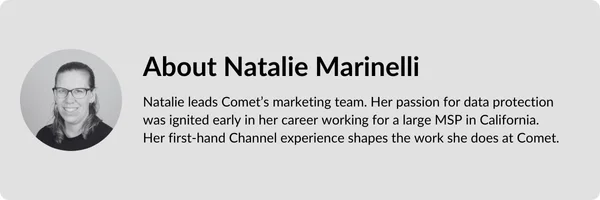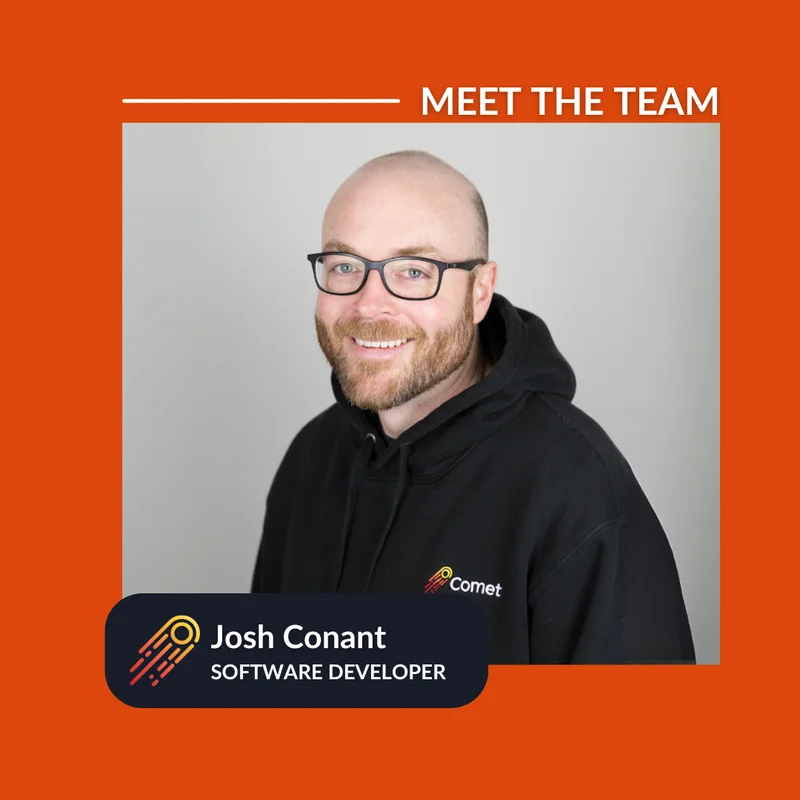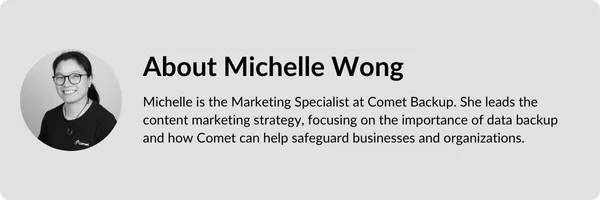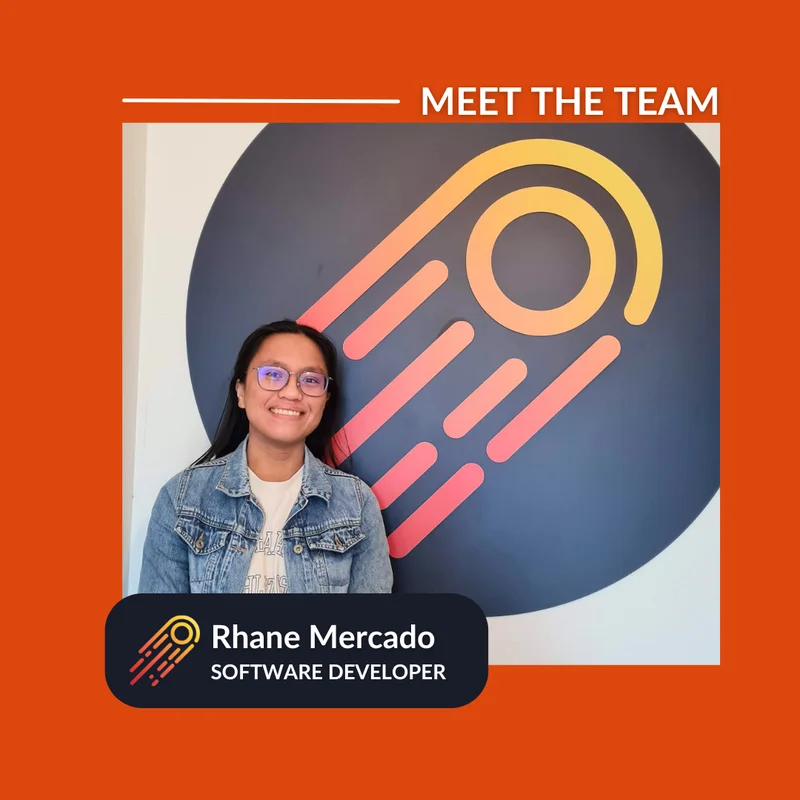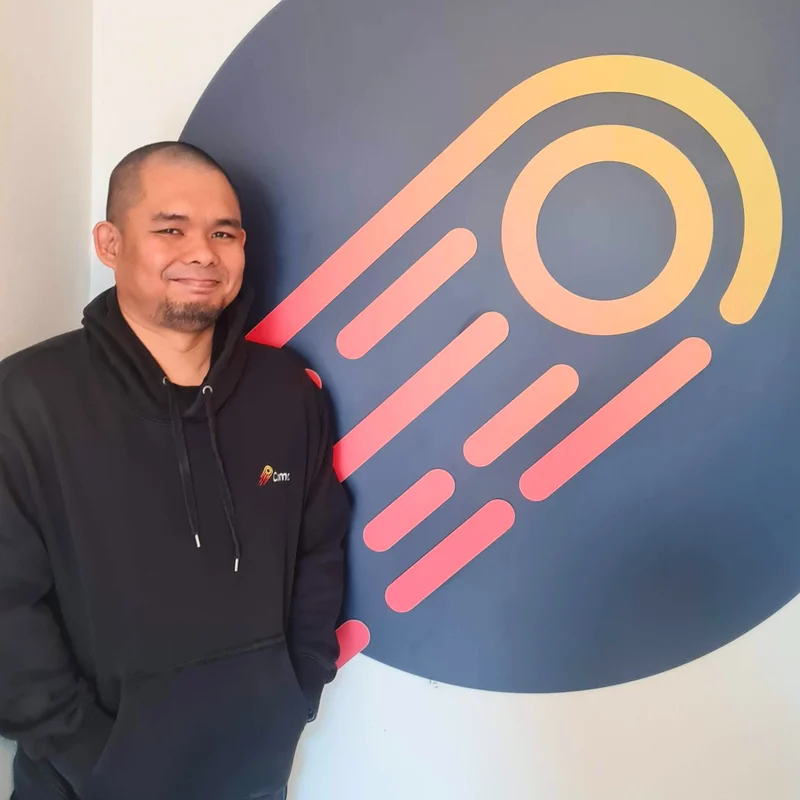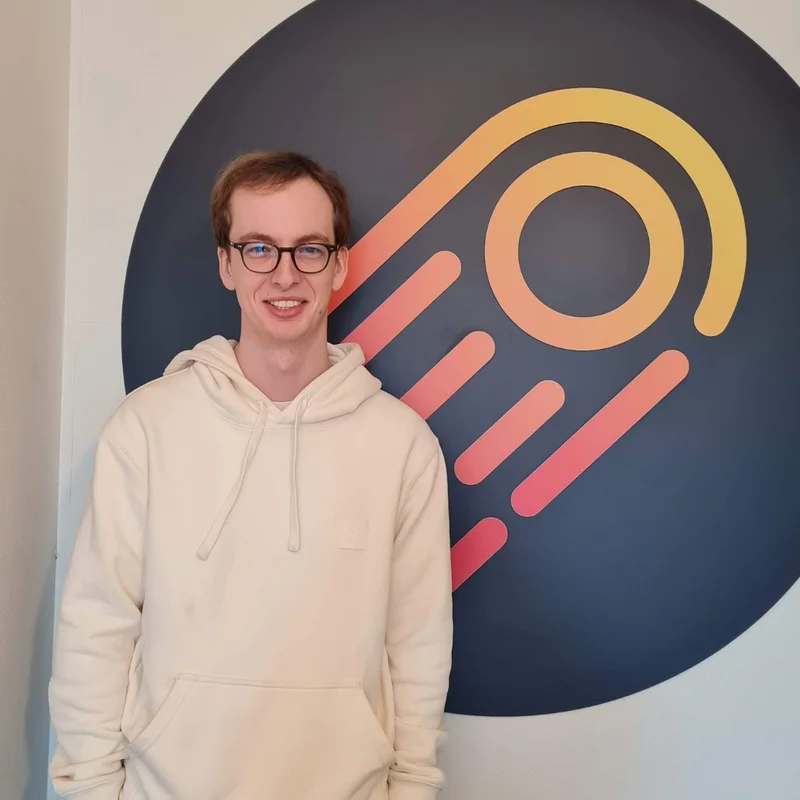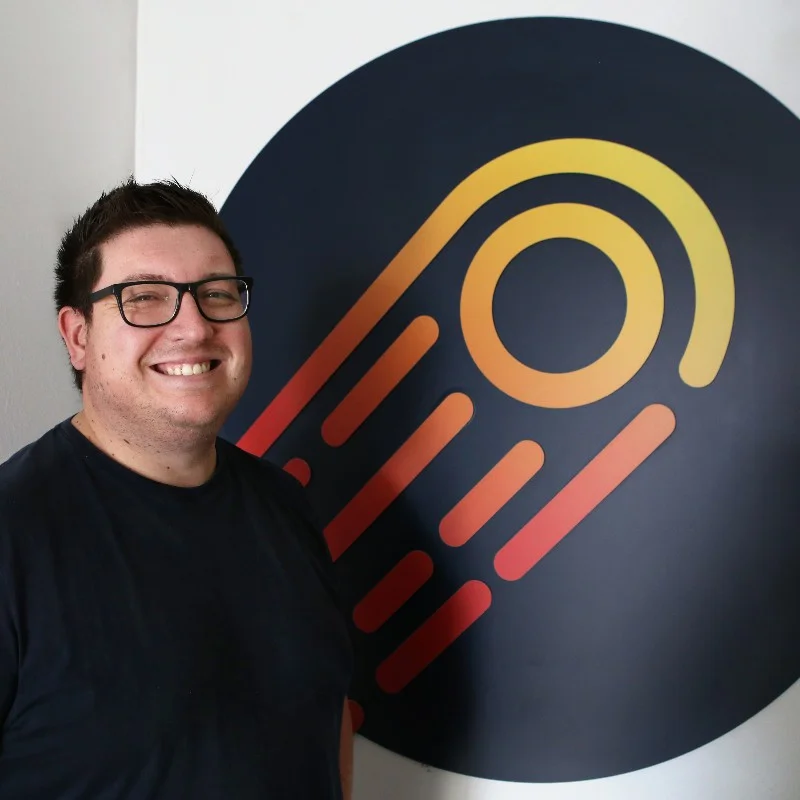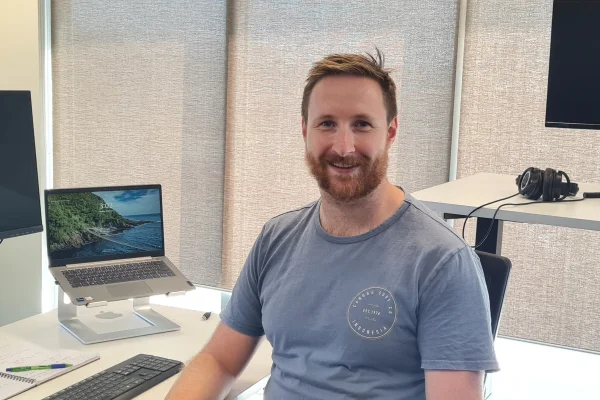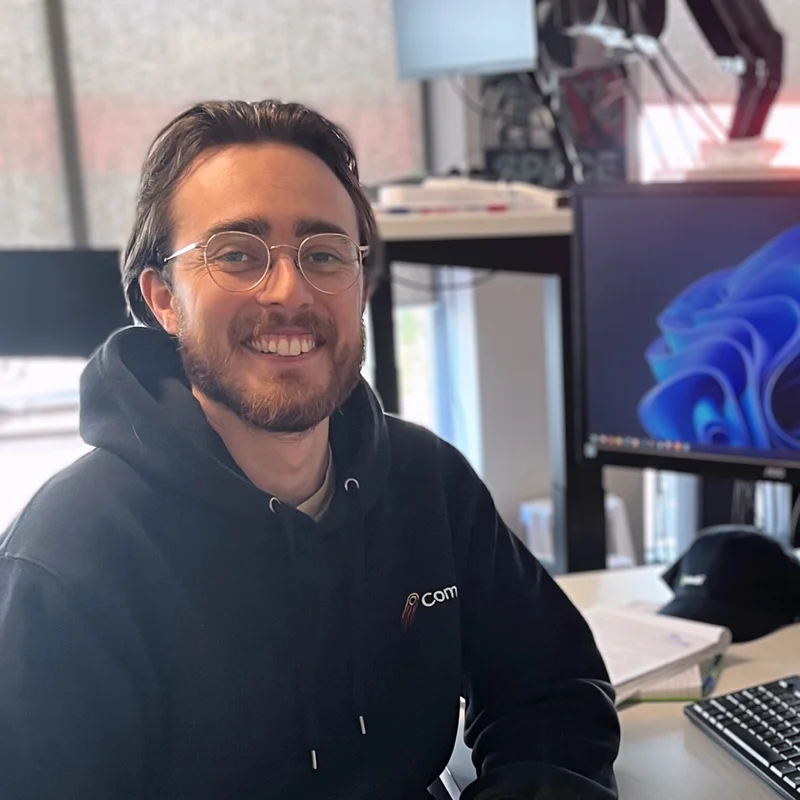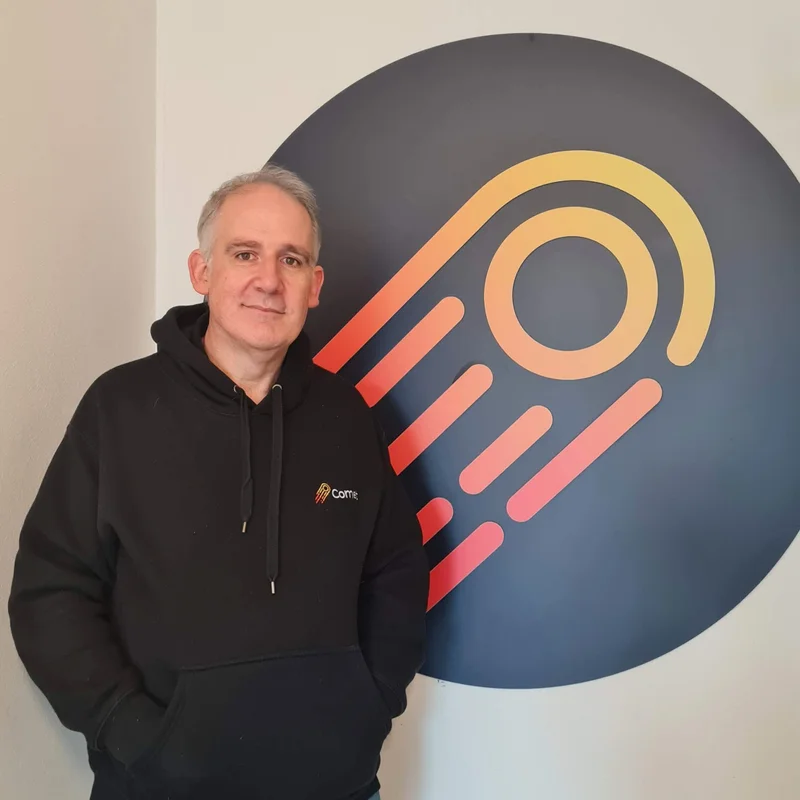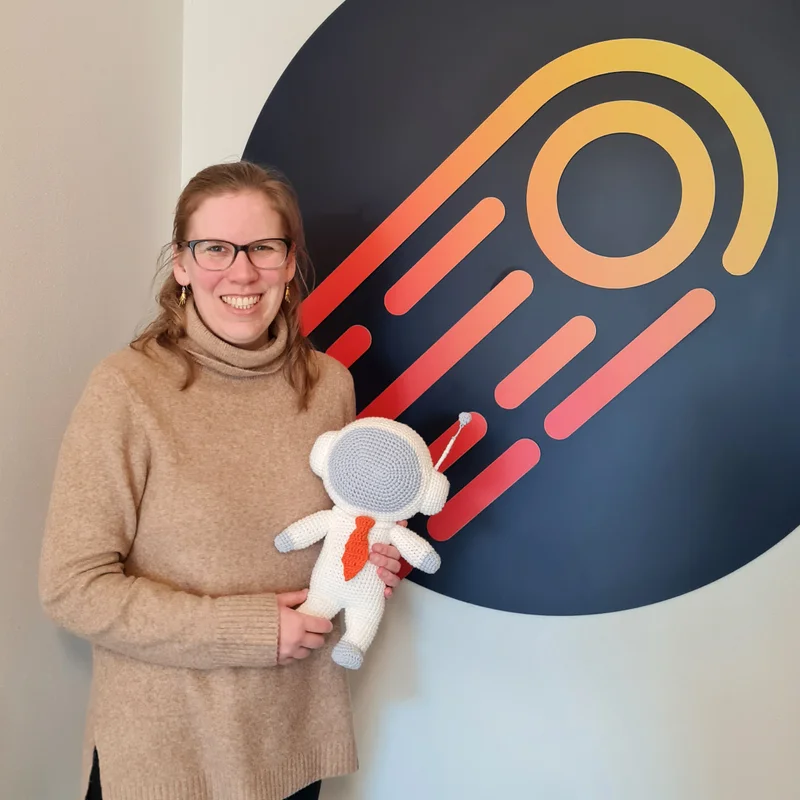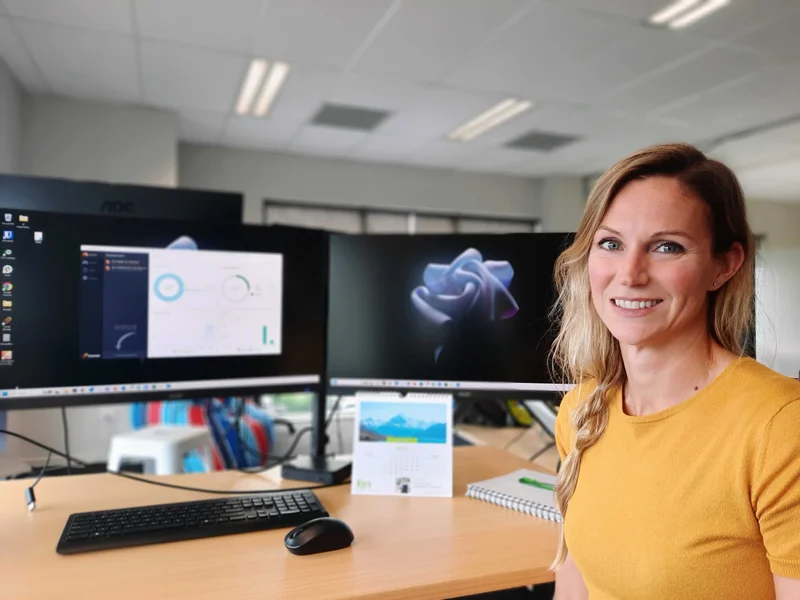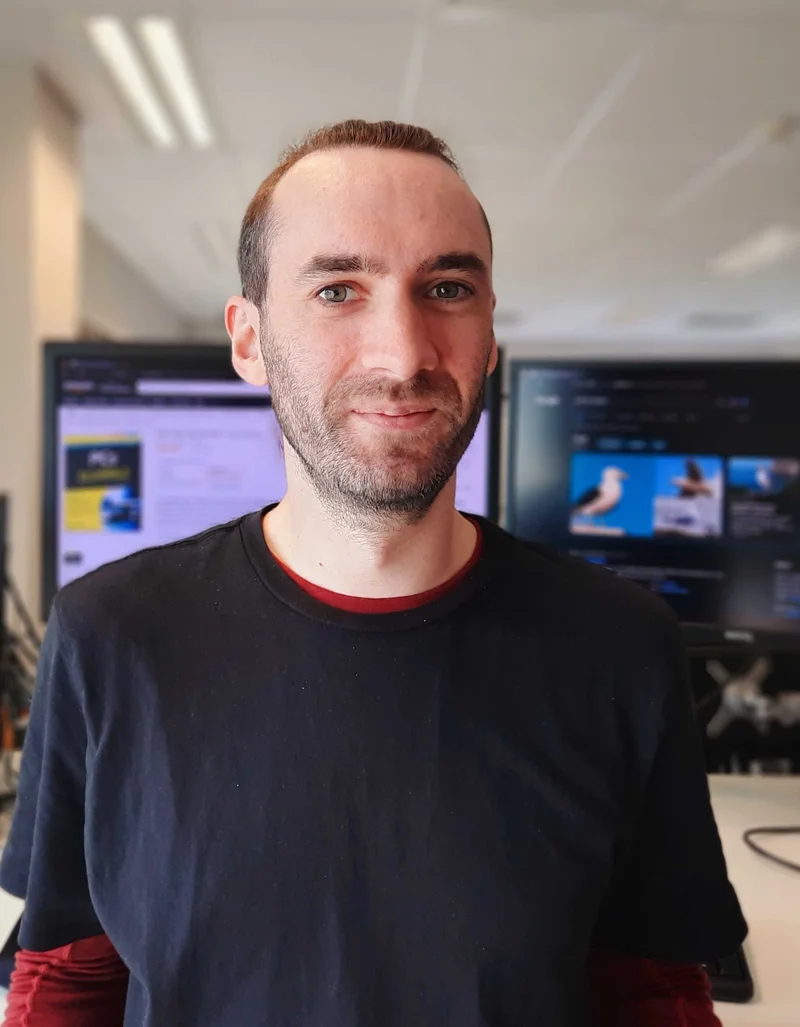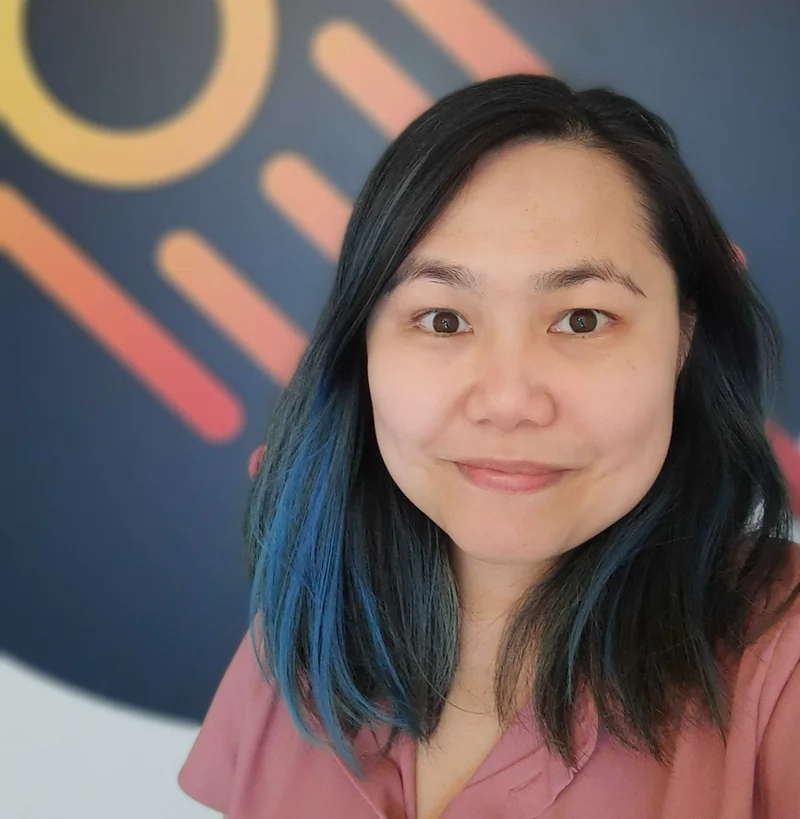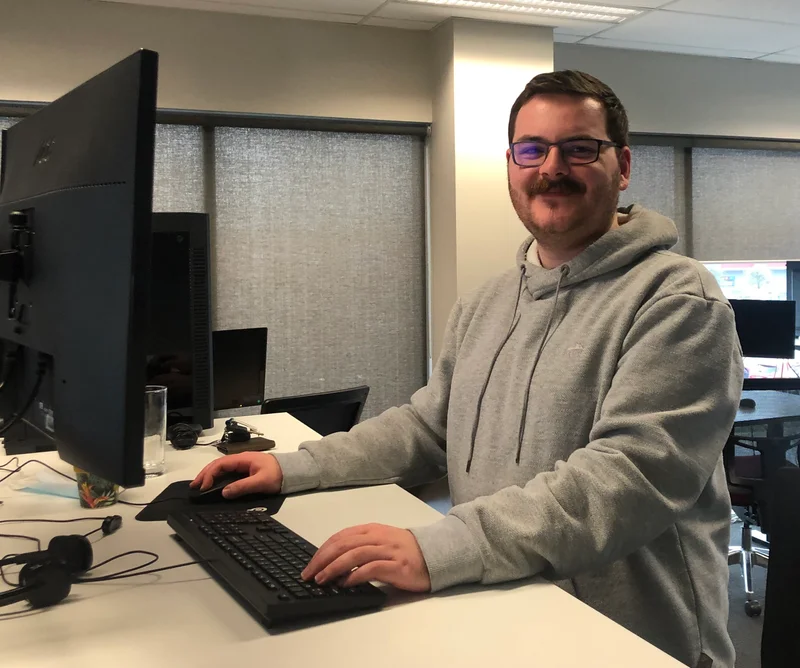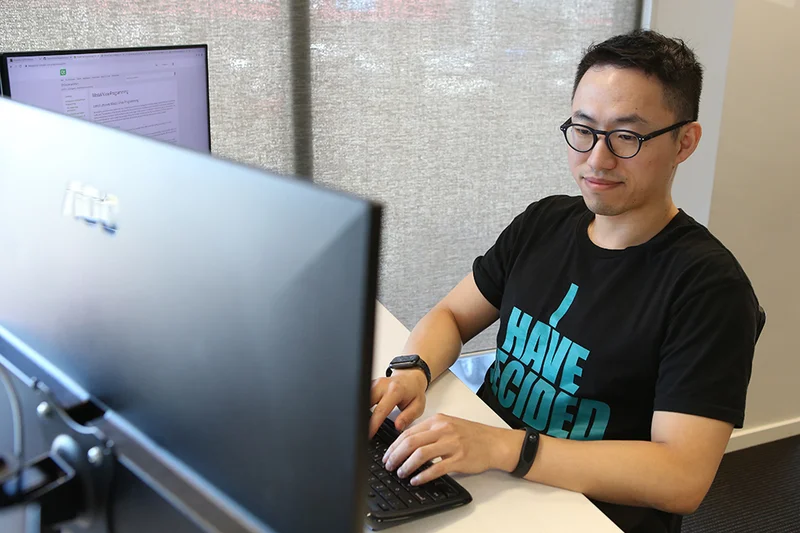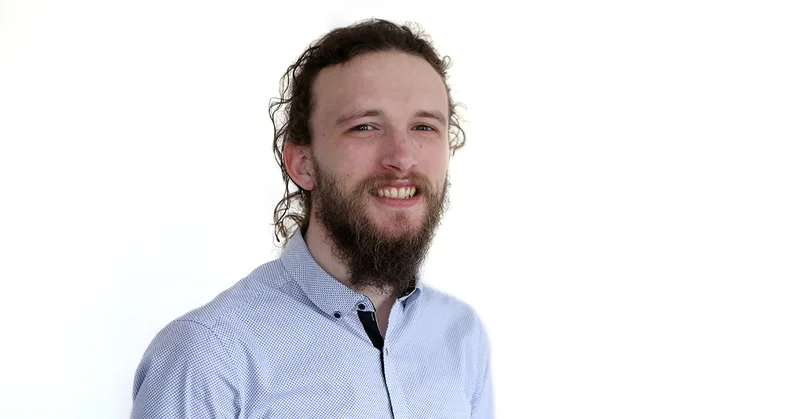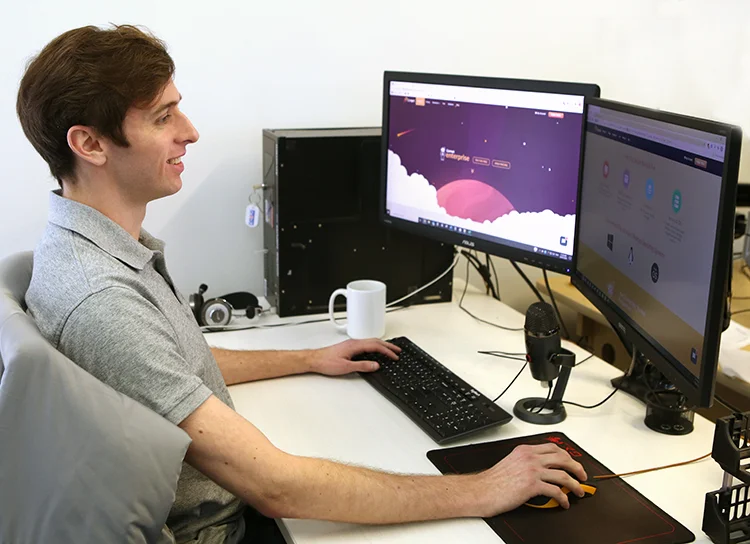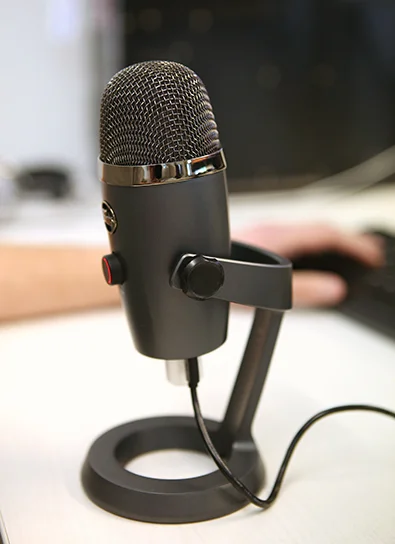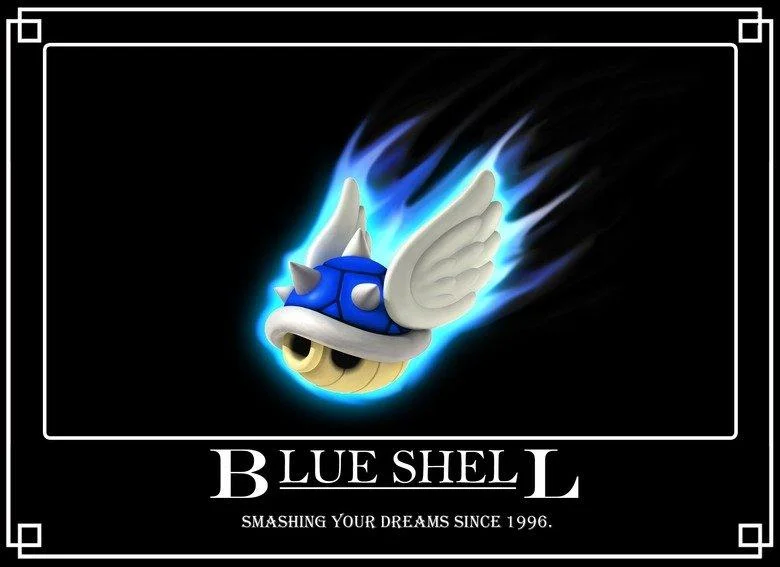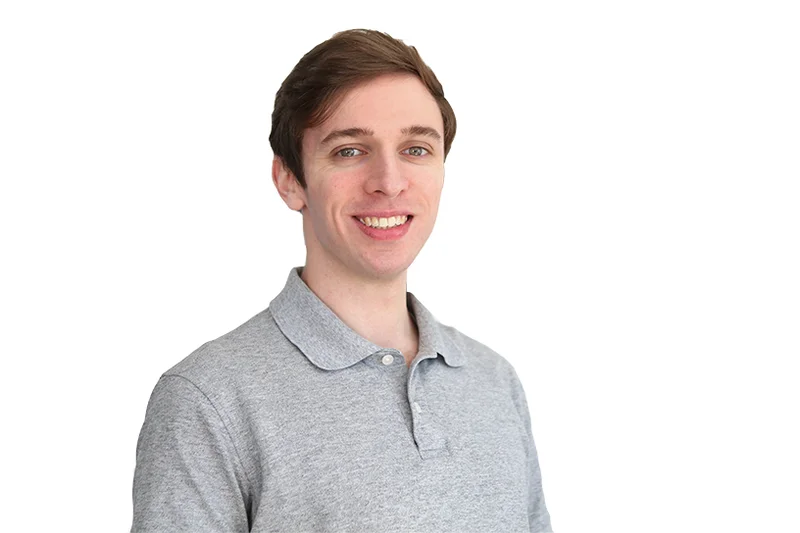Written by Natalie Marinelli - Marketing Manager
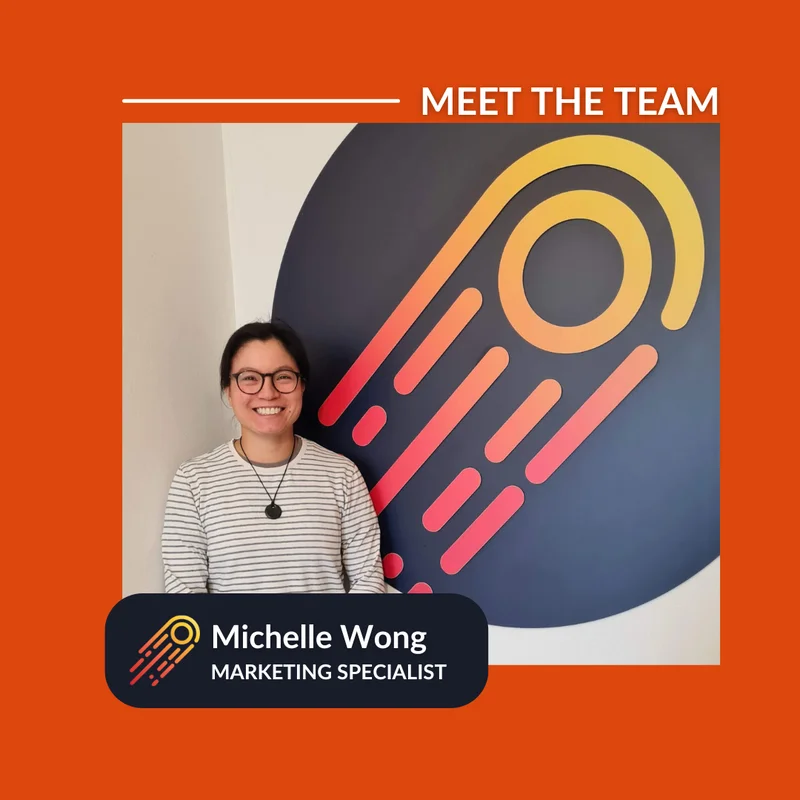
We sat down for a chat with Michelle Wong, Comet’s Marketing Specialist who has been with the company since July 2023. This piece has been lightly edited for length and clarity.
How did you get into marketing?
I sort of fell into marketing. My first love was rugby, I wanted to introduce everyone to the sport. I played at the University of Michigan and was in charge of recruiting players for our team. Without realizing I was doing marketing, I hand painted posters, designed merch, ran recruitment events, and created websites and social media pages to get the word out.
I’ve always loved being the hype-person for all the organizations and brands I’ve worked with, whether it was for rugby, the University of Michigan Rec Sports department, Kathmandu, and now at Comet Backup. My approach to marketing is to bring the energy, enthusiasm, and excitement to promote the brand or company.
What’s your background in marketing before coming to Comet?
I started out volunteering doing marketing for rugby clubs I’ve played on and various rugby organizations to champion the sport. For a few years, I covered USA Rugby’s day-to-day social media content, and their domestic competitions, international tournaments, and the 2014 Women’s Rugby World Cup in France.
When I came to New Zealand in 2014, I did data admin at Kathmandu, an outdoor retail brand. Then I moved into a customer service role doing community management for their social media platforms. Eventually, I transitioned onto their marketing team, where I specialized in email marketing and campaigns.
What was it like coming to Comet and pivoting to working in the IT software industry?
Coming to work in the tech industry and B2B SaaS (software as a service) space was really new to me. Previously, I worked in B2C in the sports and retail sectors where I was the target market and end user, so I was very familiar with how to market to those audiences.
Comet was a new challenge because I don’t have an IT or tech background. But the team was incredibly helpful. They answered all my questions and made the transition easy for me.
What motivated you to make the leap between industries and roles?
Before coming to Comet, I never really thought I would work in the tech industry. It wasn’t really on my radar.
But I was ready to try something new. I had specialized in email marketing at Kathmandu for almost four years, so I was looking for an opportunity to expand my marketing skills in other areas.
At Comet, I’ve stepped into a new phase in my career. I’ve had the opportunity to grow into a more well-rounded marketer and lead bigger projects. I get to create and implement the content strategy and own the content calendar, including email, organic social, blog posts, webinars, industry groups and integration partner marketing, and more. I love the variety of marketing activities and having creative freedom and autonomy.
What was it like coming to work at Comet even though you didn’t have a background in tech?
Comet is really good at seeing the potential in people. Cultural fit is one of the key things we prioritize during the hiring process. We want to make sure everyone gets along and shares our values of collaboration, creativity and craftsmanship.
I didn’t have a tech background, but I was open to learning, and everyone at the company wants to help you succeed.
How did the team help set you up for success?
When I first joined the company, I had one-on-one meetings with people from different departments. People from all areas of the business spent time with me, telling me about their role and how the backup software works.
Natalie, our Marketing Manager, made IT flashcards for me as a fun way to learn some of the industry specific terms. And I was given a lot of time to research and get a grasp on the tech industry and our audience (IT professionals).
Even now, I still spend time every week reading what IT people are saying in different forums and online community groups, learning what they care about, and what their challenges are.
What do you love about working at Comet?
Genuinely it's the people. Everyone actually cares about you as a person. People are interested in what you did on the weekend and ask you about your hobbies or your holiday. Everyone's really genuine, friendly, and kind. We also have a lot of fun, great conversations and laugh a lot.
I feel comfortable asking anyone questions. I can go directly to the GM, CTO, Product Manager or whoever, and they'll have always make time for me. Everyone's really supportive and collaborative. We just want to help each other out.
What is the work culture like at Comet and on the marketing team?
What I really love about working at Comet is that I feel valued and that my ideas matter. I can make an impact with the work I’m doing.
The projects I choose are largely self-driven, with input and guidance from my manager when I need it. I have lot of freedom to run with new ideas and try different types of content and marketing activities.
What’s it like getting to craft the branding and content for an IT software company?
Comet Backup has a fun outer space theme, so there’s a lot of potential to be creative with the branding and have fun with the marketing.
I feel like I get to be really creative in my role. My manager supports me and helps coach me through areas I’m not as familiar with, and trusts me in areas that I have more experience in. We are always collaborating and learning from each other.
What was the inspiration behind the CometCon meme workshop you led?
At CometCon, our internal conference, I gave a presentation on how we can make our content marketing strategy more entertaining and relatable. Our company culture is really friendly, helpful and fun – so I wanted our marketing and brand personality to reflect that.
Personally, I follow brands because they are either educational, inspiring, or entertaining. I wanted to introduce the ‘entertaining’ part to Comet’s marketing mix by incorporating memes and IT humor.
After the presentation, I ran a meme workshop. Everyone at the company contributed and had a lot of fun coming up with memes. It was really cool to see our GM and company owner get involved. They are really into Comet’s space brand and supportive of making our content fun and helpful.
Outside of CometCon, what other learning and development opportunities are there?
We are encouraged to attend events and talks. Comet is part of a lot of tech organizations across New Zealand, including the Tech Marketers Group, Women in Tech, and Kiwi SaaS. I’ve also joined a few marketing community groups on Slack, including Generate (an APAC tech marketers group) and The Marketing Club AU/NZ.
I participated in a Women in Tech mentorship program, and a virtual tech marketing training cohort over 6 weeks. It’s been great to connect and network with other tech marketers and women in tech to share experiences and ideas.
How do you feel Comet’s work culture supports your lifestyle?
We have hybrid working at Comet. If you're based in the head office in Christchurch, we have a few days in the office and a couple days working remotely. I love it, I think it’s a great balance of having collaborative face-to-face time, and then the option of working from home and not having to commute on those days.
The flexibility is great, people have varied start and finish times to work with their schedules. I’m more of a standard 8:30am to 5pm. I go to the gym in the morning and I finish at 5pm so I have enough time to bike home and get to rugby league training at 6pm. Some people start earlier and finish earlier, so they have the afternoon off. People with kids can do school drop off or pick up, and finish their hours later. There’s real work life balance.
What are your interest in hobbies outside of work?
I really love the outdoors and being outside in nature, hiking, tramping, camping, surfing, and going on road trips in our van. I’m also a rugby union and rugby league fanatic, as a player and a fan. I like also barbecuing, cooking, trying new recipes, and catching up with friends.
